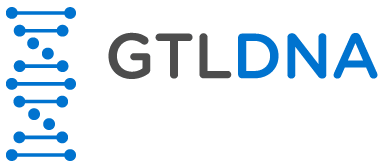Benefits of Non Invasive Prenatal Down syndrome Screening Test for Expecting Parents
Having a child is one of the most wondrous and exciting things that can happen. Behind all of the wonder, there is also a worry about the different complications that can occur during pregnancy. One of the most common genetic disorders out there is known as Down Syndrome. It can have a large range of different effects that vary from person to person based on individual circumstance.
You might be wondering how parents can identify whether or not their child has Down Syndrome before they are even born. Not long ago the only way to tell whether or not your child was going to be born with this disorder was through rigorous and invasive diagnostic testing.
Luckily, things have changed in the past few years and now expecting mothers can take a prenatal screening test to see if their child could carry the extra chromosome. Once the screening test is complete parents can take whatever diagnostic route their doctor suggests for the best results.
Characteristics of Down Syndrome
Down Syndrome has the tendency to manifest itself in a number of ways. The severity of the disorder depends on a number of factors. Despite the variance there are a list of traits that tend to appear more often than not in children with Down Syndrome.
The most common characteristics include low muscle tone, noticeable upward slant of the eyes, oversized tongue, and smaller than average nose and ears. Some or all of these traits are known to appear.
How the Prenatal Screening Test Works
A new screening test for Down’s syndrome is called the Noninvasive prenatal test. It is done using just blood samples from the mother and the test essentially relies on counting the number of fetal chromosomes to determine if there are any abnormalities in their number. Find out more about how non-invasive prenatal testing for Down’s syndrome is carried out.
In order to take the screening test, you need to find a lab that would be willing to test the sample, or you can follow up with your doctors and find out their recommendation.
If you decide to use a third party company, they will send all of the testing materials to the doctor’s office that you provide for them. Once required samples have been collected they will need to be returned for analysis.
The purpose of any screening test is to look and see if anything seems off or abnormal. Ultrasounds are the most common screening tests and are a standard part of prenatal care. It is important to note that screening tests are designed to be an indicator. If there is a sign of Down Syndrome in a child more rigorous diagnostic tests may need to be performed.
Benefits of Testing
If you were to ask expecting parents what some of the benefits are to this testing method, you might be surprised at the results. There are actually a ton of great pros to getting the screening test done as soon as possible throughout the pregnancy.
Some of the benefits include:
- Results with up to 99% accuracy, which helps parents gauge what they need to do next.
- Peace of mind. No one likes to be caught off guard, this testing method allows parents to get the results quickly.
- Non Invasive. Some of the diagnostic tests can be a risky. Expecting mothers do not need the stress of a test that they simply do not need done. This screening test has helped thousands of parents avoid diagnostic testing.
- Preparation. If you find out that your child is going to have Down Syndrome you will be able to prepare as early as possible.
